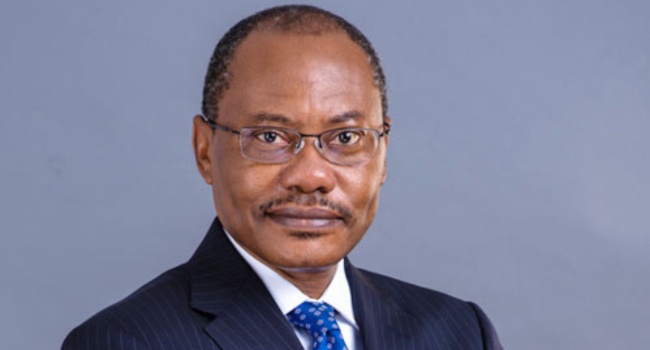Nigeria’s foreign reserves dropped by 4.27 per cent in the first quarter of 2023 as foreign capital importation into the country nosedive, Prime Business Africa learnt.
This represents a $1.58 billion depletion in the foreign reserves between January to March, as it fell to $35.49 billion at the end of last month.
Join our WhatsApp ChannelAccording to data obtained from the Central Bank of Nigeria (CBN), Prime Business Africa gathered that the international reserves fell from $37.08 billion posted on 30 December 2022.
The decline in international reserves is driven by a drop in Foreign Direct Investment (FDI) and Foreign Portfolio Investment (FPI), both of which make up foreign capital importation.
In Q4, foreign capital importation fell to $1.06 billion from $1.16 billion in Q3. A wider view showed that Nigeria recorded $5.32 billion in 2022, below the $23.9 billion recorded in 2019, according to data obtained from the National Bureau of Statistics (NBS).
What this means for Nigeria’s foreign capital importation and foreign reserves
Foreign Direct Investment is a cross-border investment involving a foreign investor that takes an interest in a country’s economy and builds or invests in a business, while Foreign Portfolio Investment is done by an international investor by investing in stocks or bonds listed on an exchange in another country.
Foreign capital inflow affects international reserves and vice versa. The increase in the latter raises the former, while the decline in foreign reserves makes it difficult for foreign investors to repatriate their returns and investments, consequently discouraging international investors from investing in businesses or securities in Nigeria.
Impact of low foreign reserves on FPI
Forex scarcity in Nigeria is making Africa’s largest economy unattractive to foreign investors in the capital market, the reason international investments in the stock market have dropped in the past.
FDI dropped from N974 billion inflow recorded in 2015 to N364 billion between January to November 2022, a situation which the Director General of Securities and Exchange Commission (SEC), Lamido Yuguda, said is caused by foreign exchange situation.
“At the moment, we all know that there are challenges with the foreign exchange situation in Nigeria.
“International investors are reporting some delays in accessing foreign exchange for the repatriation of their dividends or their capital.
“Because of this, you are seeing a reduced proportion of foreign investors in the Nigerian capital market relative to what this market has been used to,” Yuguda said last week.
In a chat with Investment Research Analyst, Charles Abuede, he explained: “An increase in the rate of FPI into Nigeria brings about a significant and positive accretion in the level of foreign reserves. This increase, in turn bolsters the confidence of foreign investors on the level of liquidity or capital inflow into Nigeria in the absence of economic distortions that may bring about dampened portfolio investors’ confidence.
“That being said, a low or depleting foreign reserves is a signal to FP investors on the management strategy adopted by fiscal and monetary authorities in Nigeria. Consequently, there will be a decline in the level of FPI inflows. This is evidence in the monthly FPI inflows into Nigeria through equities trading that has been on a steady decline due to low crude oil investments and production, insecurity concerns, elections jitters, inability of foreign investors to repatriate funds back to home country on the back unfavourable FX policies.”
Lack of investment and protests from foreign direct investors
Abuede said foreign reserves depletion sends negative signals to investors who will consider factors such as fund repatriation, which is often difficult due to FX policies and currency crisis management.
While declining foreign reserves discourage international investment into the country, it also causes protests from foreign investors that are unable to repatriate their funds due to the inability to access forex.
Prime Business Africa reported last year that foreign airline operators suspended their flight operations in Nigeria as they were unable to repatriate over $400 million in ticket sales in the country.
The amount has now increased to $743.7 million as of February 2023, according to the International Air Transport Association (IATA).
“The effect of the depleting foreign reserves is simply a negative signal to investors who tends to put several factors such as the existing FX policies and currency crisis management, ease of doing business and fund repatriation, liquidity in the domestic capital market and other sources of government revenue, and state of security of investment and nation, into consideration including other macroeconomic data. These guide their decision making process as they prowl for safer havens for their investments.” the investment analyst said.
Weak Naira, Strong Dollar
The depletion of the foreign reserves affects the value of the Naira in the exchange market, as the country will struggle to meet forex demand.
The scarcity of forex will lead to FX traders increasing the cost of the Dollar, Euro and Pound due to demand overshooting supply in the official and black markets.
The impact of the decline in foreign reserves is already affecting the value of the Naira, which is down –0.57 per cent between January to April 2023.
Prime Business Africa gathered that the cost of the Dollar in the official market was up by ₦2.67 kobo in the last four months, moving from ₦461/$1 to ₦463.67 kobo/$1.


















Follow Us